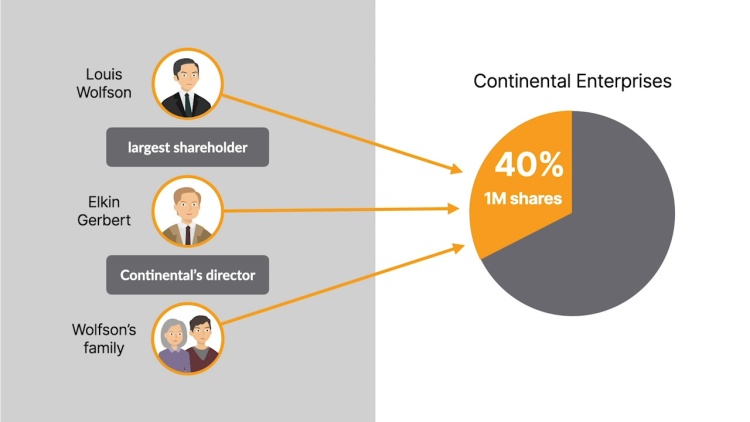United States v. Wolfson
United States Court of Appeals for the Second Circuit
405 F.2d 779 (1968), 394 U.S. 946 (1969)
- Written by Rocco Sainato, JD
Facts
Louis E. Wolfson (defendant), along with his family and his business partner, Elkin B. Gerbert (defendant), owned over 40 percent of the shares of Continental Enterprises, Inc. Wolfson was the largest individual shareholder in Continental; although he was not personally an officer or a director, all of Continental's officers were subject to Wolfson's direction, and no decisions about corporate policy were made without Wolfson's knowledge and consent. Between 1960 and 1962, Wolfson, Wolfson's family, and Gerbert sold over 633,000 of their shares of Continental, or roughly 25 percent of Continental's outstanding shares, through several different brokerage houses. The United States (plaintiff) indicted Wolfson and Gerbert for failing to register the stock before the sale in violation of federal securities law. Wolfson and Gerbert argued that they were unaware of the registration requirements and blamed the failure to register the stock on their subordinates and the brokers who sold the stock. A jury found Wolfson and Gerbert guilty, and they appealed to the United States Court of Appeals for the Second Circuit. On appeal, Wolfson and Gerbert argued, among other things, that they were exempt from the securities-registration requirements because the stock transactions were not conducted by an issuer, underwriter, or dealer.
Rule of Law
Issue
Holding and Reasoning (Woodbury, J.)
What to do next…
Here's why 911,000 law students have relied on our case briefs:
- Written by law professors and practitioners, not other law students. 47,100 briefs, keyed to 997 casebooks. Top-notch customer support.
- The right amount of information, includes the facts, issues, rule of law, holding and reasoning, and any concurrences and dissents.
- Access in your classes, works on your mobile and tablet. Massive library of related video lessons and high quality multiple-choice questions.
- Easy to use, uniform format for every case brief. Written in plain English, not in legalese. Our briefs summarize and simplify; they don’t just repeat the court’s language.





